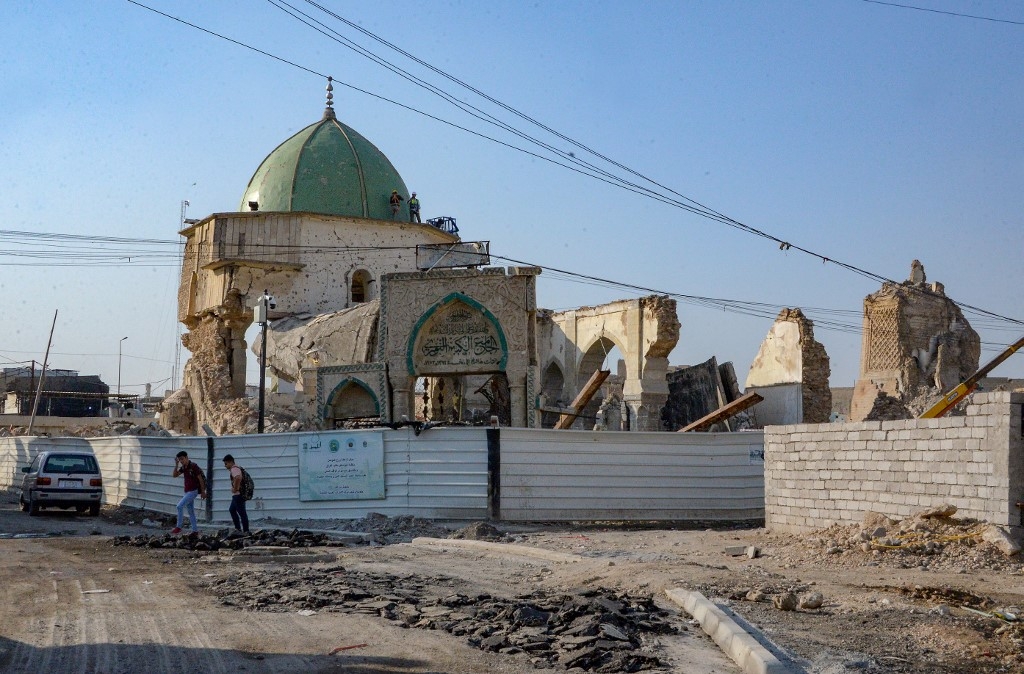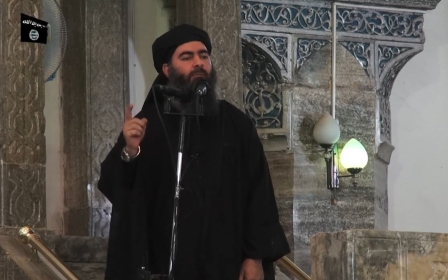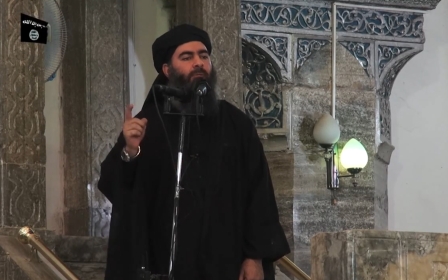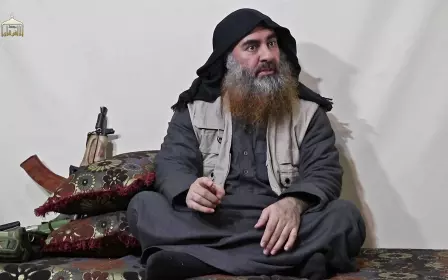Arabic press review: Who are Baghdadi's likely successors?

Who will lead Islamic State group after Baghdadi?
A report published by the news website Arabi21 on Sunday named five potential successors for Abu Bakr al-Baghdadi, the fugitive leader of the Islamic State (IS) group, who was killed on Saturday in a raid by US forces in northern Syria.
According to the online newspaper, the most likely candidate to succeed Baghdadi is Abdullah Qardash, also known as Abu Omar Turkmani, a former Iraqi military officer under Saddam Hussein.
A former senior leader of al-Qaeda, Turkmani was detained in Camp Bucca along with other IS leaders, the paper said.
New MEE newsletter: Jerusalem Dispatch
Sign up to get the latest insights and analysis on Israel-Palestine, alongside Turkey Unpacked and other MEE newsletters
According to Iraqi sources quoted by the paper, "Qardash is characterised by cruelty, authoritarianism and militancy, and he was among the first people to welcome al-Baghdadi in Mosul in 2014."
The second nominee for the group's leadership is Haji Nasser, or Abd al-Nasser, who has been on the US terrorism list since the end of 2018. Haji Abd al-Nasser is known for belonging to the most radical trend within IS.
The third nominee is Mu'taz al-Jaburi, better known as Hajji Taysir. A senior IS leader, Washington has set a $3m reward for whoever gives information leading to him.
Sami al-Jaburi, the fourth candidate, is the former IS financial affairs director and was in charge of the group's oil and gas sales, according to the paper.
The fifth candidate, according to Arabi21, is Abul Hassan al-Muhajir, IS’s official spokesman since the end of 2016 - but he was reported killed at the weekend in another US-led raid.
End of a phase
Al-Quds Al-Arabi newspaper said in its Sunday editorial that its sources "provided a more accurate and realistic picture of the operation" of the killing of Baghdadi.
The sources told the newspaper that the operation led to the killing of ten people, most of whom are from Baghdadi's cell, along with Iraqis, Syrians and a Tunisian, in addition to Baghdadi himself, his companion, three women and two children. However, the US account differed, with US President Donald Trump telling reporters that three children had died, and no mention of a companion or others.
"The bodies of Baghdadi and his companions disappeared, and it is obvious that the US forces transferred them with them," the editorial cited its sources as saying.
While the year 2016 marked the peak of his power, the editorial said the killing of Baghdadi "stands for the end of a phase that was marked by his ascension on 4 July 2014 on the pulpit of the Great Mosque of Al-Nuri in Mosul to declare a 'Caliphate State'."
The newspaper concluded by pointing out that "the killing of Baghdadi seems to be consistent with Trump's decision to stop supporting Kurds in Syria and withdrawing them from Turkey's borders. The job is over and its costs must be finished."
The future is for al-Qaeda
"It is no exaggeration to say that the upcoming period will witness the return of al-Qaeda to lead the terrorist scene as an heir to the remains of IS after the announcement of the killing of Baghdadi," Iraqi pundit Husham al-Hashimi wrote in an analysis published by the Saudi-owned Asharq Al-Awsat newspaper.
"Many local terrorist groups will retreat from pledging allegiance to IS and return under the flag of al-Qaeda again," he added.
The countries of the region can only get rid of the phenomenon of violent extremism through the cessation of armed conflicts, the initiation of reform programmes, and ensuring stability and democracy, the article added.
"The shrinking of IS-controlled territories and the end of its delusional differences mean that al-Qaeda will be prepared to take the lead in the terrorist scene once again, after its position has significantly declined following the emergence of IS," Hashimi said in his analysis.
"There are several indicators on this, most notably the inevitable collapse of the group’s organisational structure in Syria and Iraq after the killing of Baghdadi," he added.
* Arabic press review is a digest of reports that are not independently verified as accurate by Middle East Eye.
Middle East Eye delivers independent and unrivalled coverage and analysis of the Middle East, North Africa and beyond. To learn more about republishing this content and the associated fees, please fill out this form. More about MEE can be found here.




